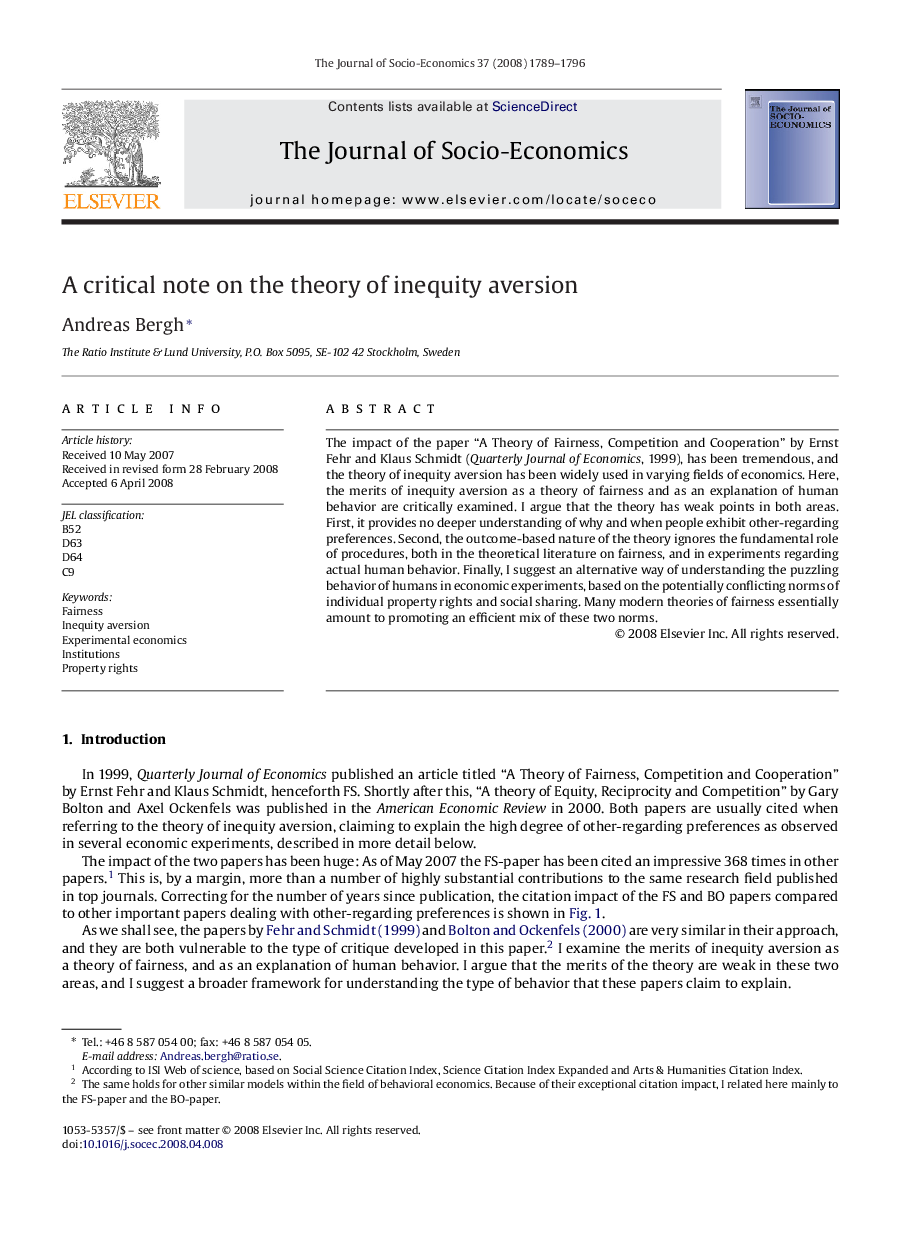| Article ID | Journal | Published Year | Pages | File Type |
|---|---|---|---|---|
| 971110 | The Journal of Socio-Economics | 2008 | 8 Pages |
The impact of the paper “A Theory of Fairness, Competition and Cooperation” by Ernst Fehr and Klaus Schmidt (Quarterly Journal of Economics, 1999), has been tremendous, and the theory of inequity aversion has been widely used in varying fields of economics. Here, the merits of inequity aversion as a theory of fairness and as an explanation of human behavior are critically examined. I argue that the theory has weak points in both areas. First, it provides no deeper understanding of why and when people exhibit other-regarding preferences. Second, the outcome-based nature of the theory ignores the fundamental role of procedures, both in the theoretical literature on fairness, and in experiments regarding actual human behavior. Finally, I suggest an alternative way of understanding the puzzling behavior of humans in economic experiments, based on the potentially conflicting norms of individual property rights and social sharing. Many modern theories of fairness essentially amount to promoting an efficient mix of these two norms.
